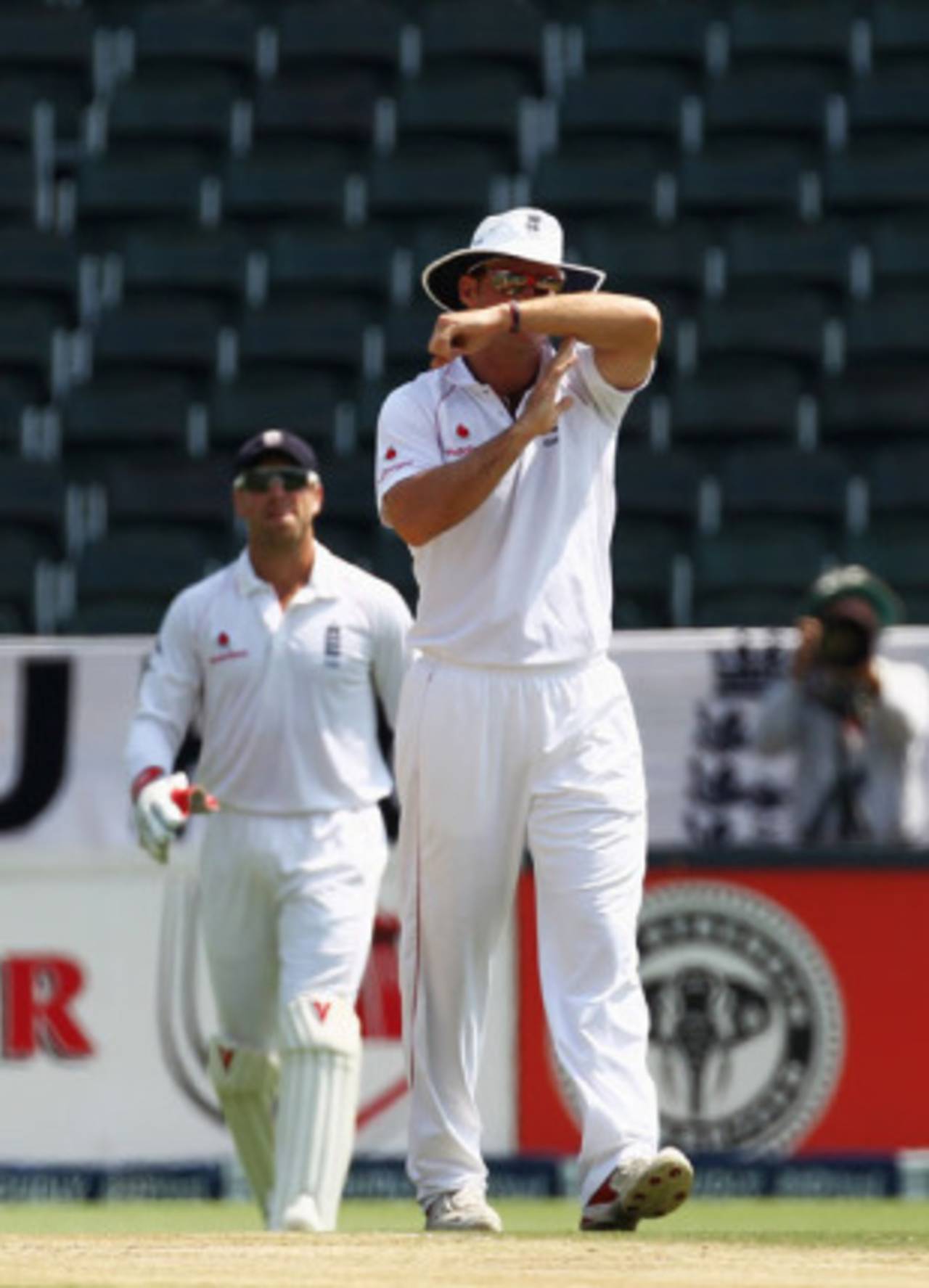The ball hits the edge of the bat before crashing into the pads. The fielding team appeals vociferously and the umpire adjudges the batsman out. Haven't we seen such inaccurate judgments being pronounced time and again?
They are far from being an aberration, and the argument is that the umpires are humans and can err too. Point taken. But what happens next depends on that single decision the captains would have taken ahead of the series. For example, if you happen to be involved in a series where the Umpire Decision Review System (UDRS) is not being used, you must make your way back to the pavilion without even breaking into a frown. For a frown or a shake of the head might be considered 'showing dissent' and could attract a summons from the match referee or even a fine.
But if the UDRS was in use, you could make the T sign and the matter would be referred to the third umpire, if your team hasn't already exhausted two unsuccessful challenges. India and Sri Lanka were the first two teams to experiment with the UDRS two years ago. Since then, both teams have taken radically different approaches. While Kumar Sangakkara believes the UDRS should be mandatory, MS Dhoni believes that there's no point in using it until it's foolproof.
Evidently, these reactions are based on their experiences. While Mahela Jayawardene (Sri Lanka's captain when India toured Sri Lanka in 2008) got it right almost every single time, his counterpart, Anil Kumble, got it wrong more often than not. But isn't it inappropriate to blame the system for not getting your judgement right? The reason the Indians struggled the first time UDRS was brought into play, was because Kumble was at mid-on or mid-off which isn't ideal to make a call. And hence he had to rely on Dinesh Karthik for inputs, who, unfortunately, got it wrong and so did Kumble. Jayawardene was always in the slips, had a better view, and hence had the advantage of calling correctly.
I'm not saying this system is absolutely correct but does that mean you refuse to use it until it's perfect? Would it also not mean that Test matches, around the world, will then be played with different rules?
We all remember that infamous Sydney Test between India and Australia. I will refrain from going into the murky details of the sordid affair, yet the issue got instigated with Andrew Symonds not given out off Ishant Sharma. Pity; it was visible to everyone except the umpire that he'd nicked it. Had there been the UDRS in place, the matter would have been settled there and then. And perhaps matters wouldn't have escalated to such extremes.
Yes, there's a lot that can be done with the current UDRS, like giving the third-umpire more power and responsibility. He should be given the right to inform the on-field umpires immediately if an error is committed. Why wait till the session gets over or till the players appeal? The idea is not to undermine the role of the on-field umpire but to empower him to make the right decisions. In fact, everyone else except the men who have to make decisions have access to the technology, to assess if the evaluation was correct or not. Every error is magnified with the TV coverage and followed by intense scrutiny from the media and people alike.
I don't know of a batsman worth his salt who likes to be given out when he is not and the same goes for the bowlers with regard to their dismissals. So, instead of being reluctant, a good idea would be to employ it first and then make an effort to make it as perfect as it can get.
